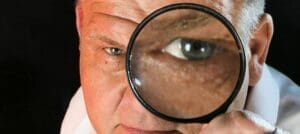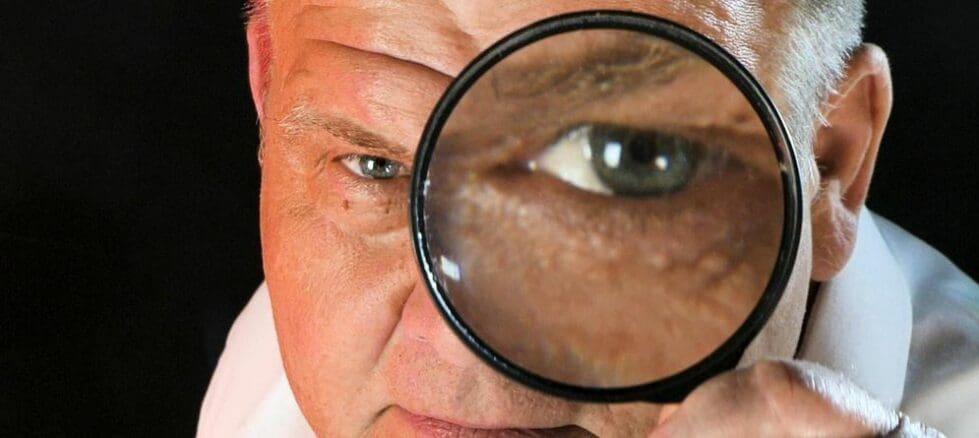

Delaware is now one of 15 states without an Office of Inspector General. Photo by Sergey Tiden/Pexels
A much-debated Office of Inspector General would be up and running by early 2025, if a new bill passes the Delaware Assembly by the end of June.
Sen. Laura Sturgeon, D-Hockessin, would create the Office of Inspector General, an independent watchdog agency empowered to investigate waste, fraud,and abuse in the executive and legislative branches of state government with Senate Bill 21, which has bipartisan support.
“A responsible government is an accountable government,” said Senate Minority Whip Brian Pettyjohn, a co-prime sponsor of SB 21. “We must do all we can to ensure public officials are held to the high standard that all Delawareans expect. Creating the Office of the Inspector General would do just that. Having an official agency free from electoral politics to help keep the government in check is necessary and long overdue.”
“House Republicans have proposed creating an Office of the Inspector General in previous legislative sessions,” said Joe Fulgham, director of Policy & Communications for the House of Representatives Republican Caucus. “While I have not polled our membership on this particular incarnation, I believe it will find significant support among our people, who have a history of backing measures to improve the accountability and efficiency of government operations.”
The bill would make the Inspector General office a nonpartisan agency capable of undertaking investigations, issuing public opinions and initiating civil proceedings against state officials accused of violating the public’s trust.
“Delawareans deserve a state government that holds itself to the highest ethical standards, fully adheres to the letter of the law, and never wavers in its commitment to uphold the public’s trust,” Sturgeon said.
The notion seemed to gain steam during the tenure of Delaware State Auditor Kathy McGuinness, who argued against creating that office and said its duties would overlap with hers.
She became the first sitting statewide elected official ever charged or of crimes while in office.
As McGuinness’s case stretched over months, many others added to the call for an inspector general, including the Delaware Coalition for Open Government.
That group supports the bill, according to a statement from its board of directors.
An inspector general “will assist state agencies to focus on their missions by reinforcing agency policies and procedures, by investigating wrongdoing if necessary, and ultimately enhancing public trust through independent oversight,” the statement said.
It urged quick consideration and passage.
Sturgeon said elected officials of the state owe constituents more transparency and accountability.
“The bill I am introducing today will give our fellow Delawareans more certainty than ever that their elected officials are upholding their oaths of office and greater assurance that the state agencies tasked with working in the public interest are living up to that mission with honor and integrity,” she said. “I believe this measure will provide that oversight and, in doing so, help to preserve the public’s faith in its democratic institutions for decades to come.”
Delaware is one of only 15 states without an inspector general of any kind, a gap the Delaware Coalition for Open Government, Delaware Press Associatio, and other public watchdog advocates have urged lawmakers to fill.
SB 21 would make Delaware the seventh state to create a government-wide Office of Inspector General with full subpoena powers and the authority to investigate alleged violations of state law and the state employee code of conduct, along with other forms of mismanagement and corruption.
Under SB 21, the Delaware Secretary of State would be required to convene a 15-member selection panel to recommend three inspector general candidates to the governor, who would nominate one for Senate confirmation.
Inspector General empowerment
The term of the inspector general would last 5 years to ensure the position carries over from one governor to the next. At the end of the 5-year term, the inspector general position would either be reconfirmed, or the position refilled, depending on the recommendation of the selection panel and the nomination of the governor.
No statewide public office holder, member of the General Assembly, cabinet secretary or division director would be eligible to hold the office for at least three years after they leave office.
Once confirmed by the Senate, the inspector general would hire a deputy inspector general and a staff qualified in conducting investigations, audits or other forms of oversight or government evaluation.
The office would be required to maintain a statewide toll-free number, a collect telephone number, a website, an email address, and a mailing address for receiving complaints into fraud, waste, mismanagement, corruption or other abuses of government resources that harm the public interest.
The office would be required to notify a complainant if it opts not to pursue a complaint.
Any evidence of a crime would be forwarded to the Department of Justice or other appropriate law enforcement agency for prosecution. The inspector general would be empowered to initiate a civil action in the courts on its own.
SB 21 also includes language to protect the identity of complainants. The names of state employees also would be protected if an investigation finds no instances of wrongdoing.
SB 21 has been assigned to the Senate Executive Committee, which meets Wednesday at 3 p.m. but does not yet have an agenda attached. Watch it here.


Betsy Price is a Wilmington freelance writer who has 40 years of experience.
Share this Post









